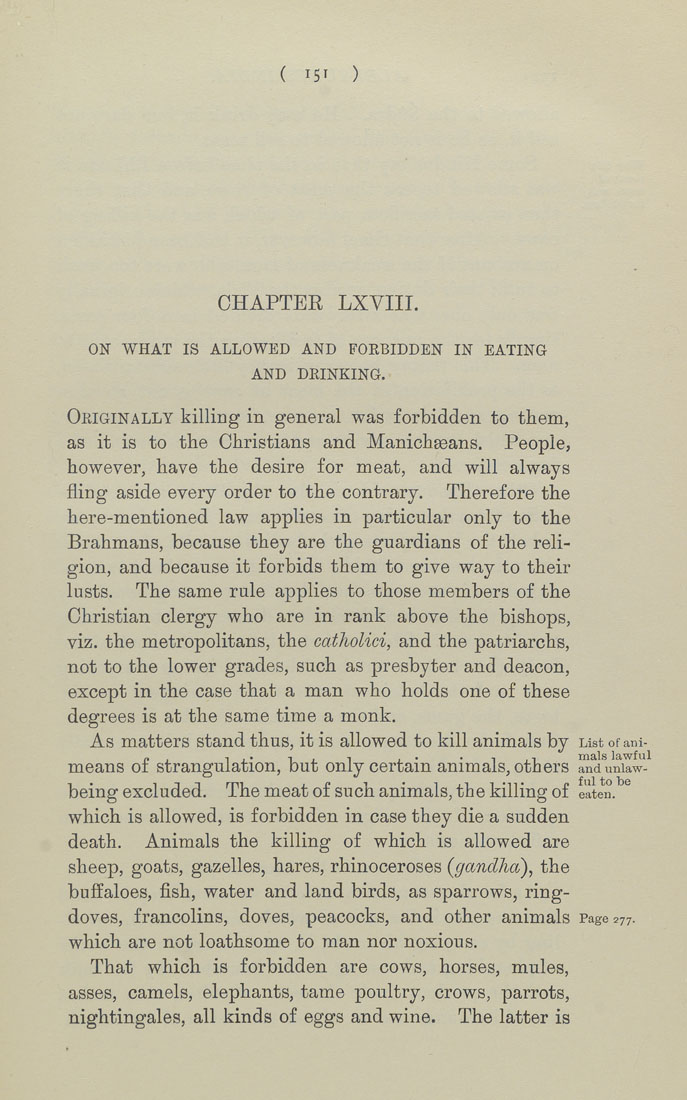( 151 )
CHAPTER LXVIII.
ON WHAT IS ALLOWED AND FORBIDDEN IN EATING
AND DRINKING.
Originally killing in general was forbidden to them,
as it is to the Christians and Manichseans. People,
however, have the desire for meat, and will always
fling aside every order to the contrary. Therefore the
here-mentioned law applies in particular only to the
Brahmans, because they are the guardians of the reli¬
gion, and because it forbids them to give way to their
lusts. The same rule applies to those members of the
Christian clergy who are in rank above the bishops,
viz. the metropolitans, the catholici, and the patriarchs,
not to the lower grades, such as presbyter and deacon,
except in the case that a man who holds one of these
degrees is at the same time a monk.
As matters stand thus, it is allowed to kill animals by List of ani-
means of strangulation, but only certain animals, others anduniaw-
being excluded. Themeatof such animals, the killing of eaten.
which is allowed, is forbidden in case they die a sudden
death. Animals the killing of which is allowed are
sheep, goats, gazelles, hares, rhinoceroses (gandha), the
buffaloes, fish, water and land birds, as sparrows, ring¬
doves, francolins, doves, peacocks, and other animals Page 277.
which are not loathsome to man nor noxious.
That which is forbidden are cows, horses, mules,
asses, camels, elephants, tame poultry, crows, parrots,
nightingales, all kinds of eggs and wine. The latter is
|








